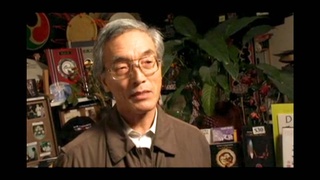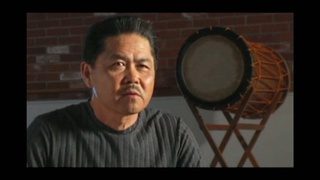Interviews
Taiko is a reflection of where you live
Because…that’s the interesting part of taiko. It really does reflect where you live. Like if you listen to the Ogden taiko group, it’s very laid back and like this. Any LA group is just schizophrenic because we live in LA. So it does show, to some degree, where you live, so it’s interesting to watch. The Hawaiian ones are interesting because the Hawaiian groups have really dipped into Hawaiian tradition and musical traditions and put it together. Here, there’s not that kind of tradition that they come from. So they borrow Afro-Cuban kinds of things, or popular music. It comes from there.
Date: December 3, 2004
Location: California, US
Interviewer: Art Hansen, Sojin Kim
Contributed by: Watase Media Arts Center, Japanese American National Museum





